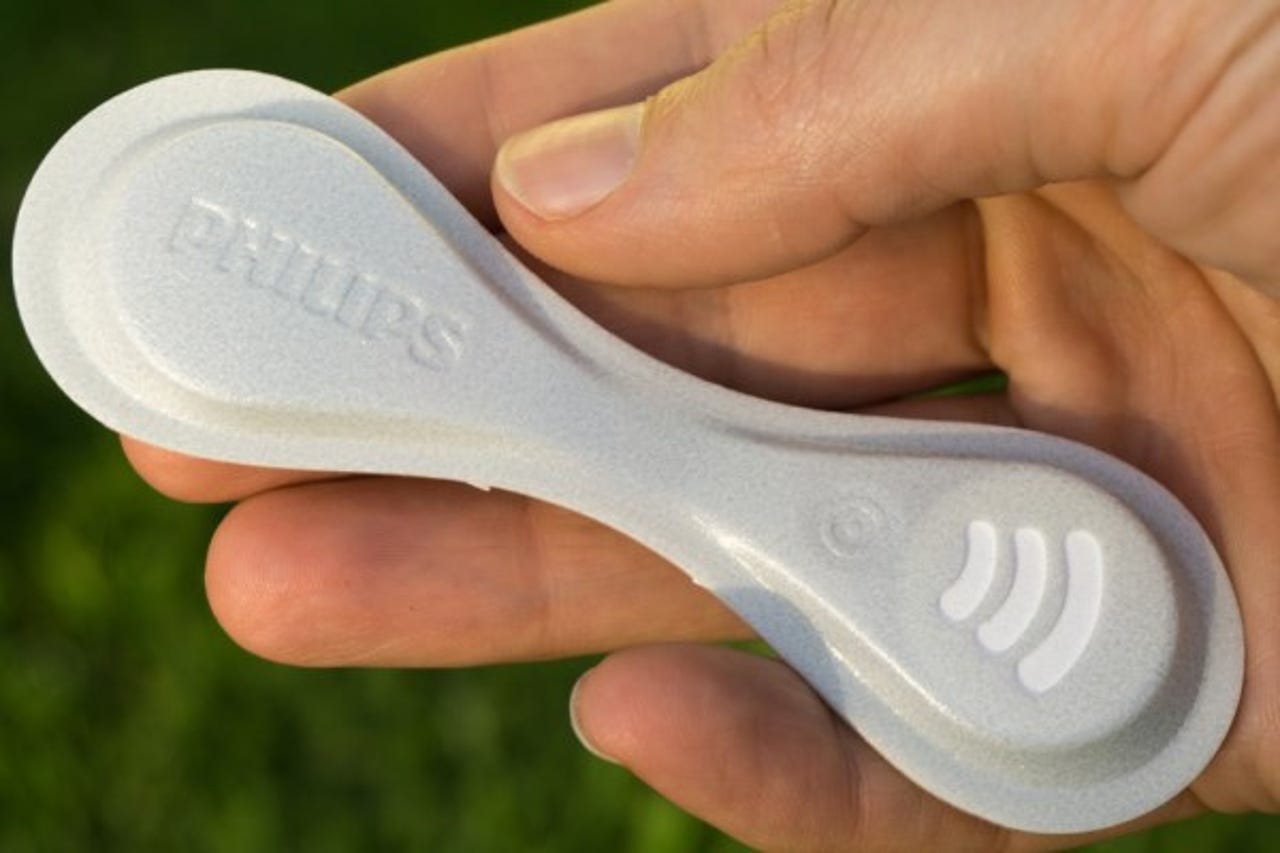Wearable biosensors can monitor hospital patients via their smartphones


Philips' monitoring patch uses a biosensor from a Silicon Valley company, VitalConnect
A stick-on medical-grade biosensor will soon allow hospitals to monitor patients' health via a cloud-based system. If a problem is detected, the biosensor uses Bluetooth to connect to a mobile phone and send the data back to doctors.
VitalConnect's VitalPatch biosensor is more advanced than today's commercial fitness gadgets. It can track your heart rate, respiratory rate, skin temperature and body posture, as well as counting steps and detecting falls.
If patients no longer have to be wired to an ECG machine, they can move around more and may be able to leave hospital sooner.
The biosensor module is integrated into a large "patch" which is then stuck to the patient's chest. It runs for three days (with ECG) or four days (without ECG) before being peeled off and thrown away.
Philips is currently testing the system with at-risk patients in general wards, using its cloud-based IntelliVue Guardian system to alert doctors to any problems
In a statement, Philips' Carla Kriwet, CEO of Patient Care and Monitoring Solutions, said: "We envision a future where patients enabled by connected health technologies will recover faster with fewer complications and greater peace of mind in the hospital and subsequently at home."
Philips Health Watch
Philips already offers a range of sensors and is developing a HealthSuite Digital Platform that runs on Salesforce's cloud. Philips says: "HealthSuite with Salesforce is designed to be an open ecosystem for third-party app developers, with the potential to transform both professional healthcare delivery and continuous personal health management."
The idea is to make this a vendor-neutral platform for storing medical images, documents and other clinical data in standard formats.
Philips is developing a range of consumer devices that will work with HealthSuite. These include the Philips Health Watch, a tubeless upper-arm blood pressure monitor, a smaller wrist-worn blood pressure monitor, an ear thermometer (for measuring body temperature), and a body analysis scale, which estimates your body fat.
Philips is expected to launch the Health Watch in the US. However, if sold as a medical-grade device, it will need FDA approval.
VitalConnect's VitalPatch is already FDA-approved but not available to consumers.
The merging of medical and consumer data could be a challenge to privacy and raises some interesting questions. For example, if a worker calls in sick, could you check their health data remotely, to see exactly how sick they are?